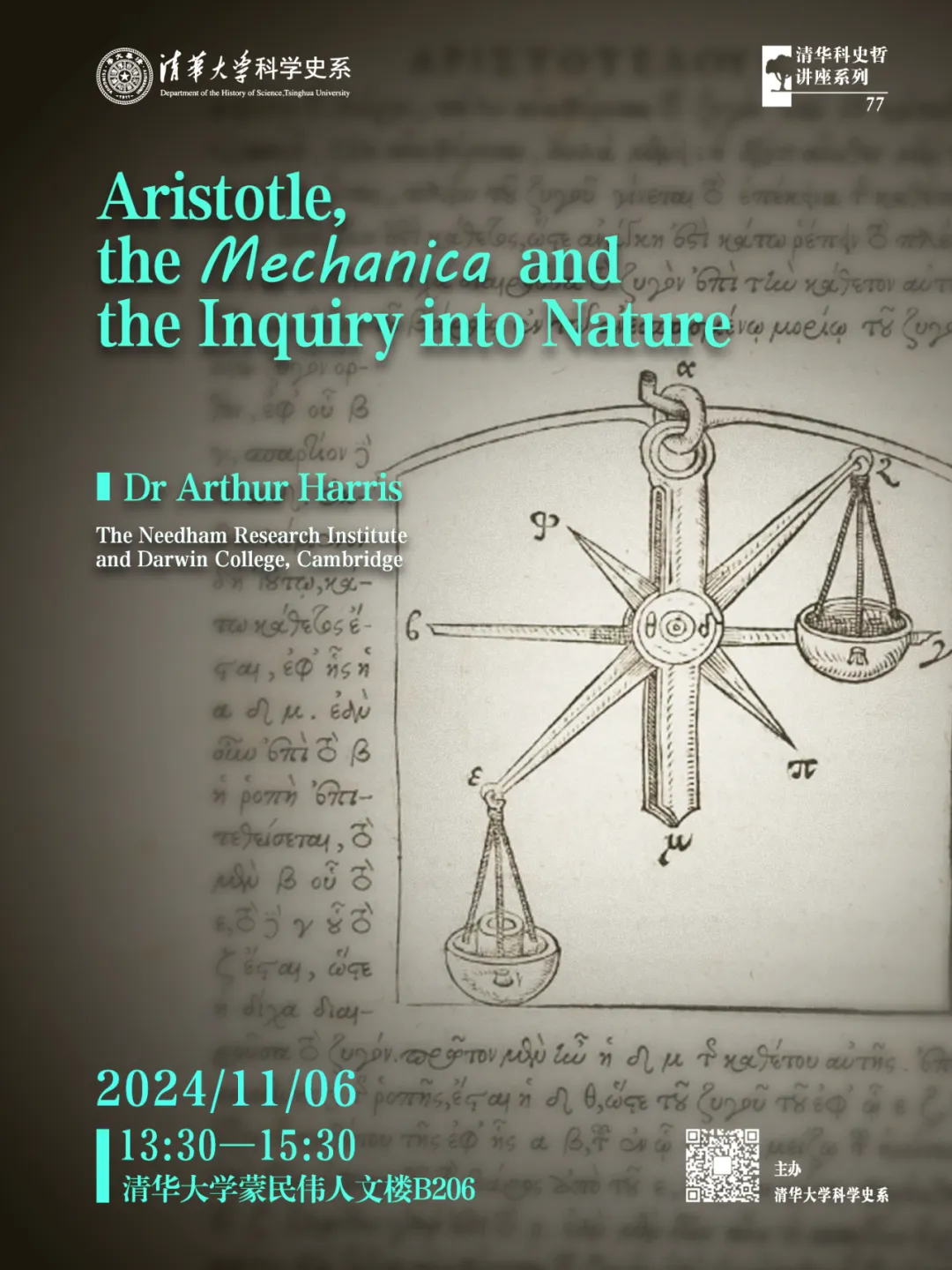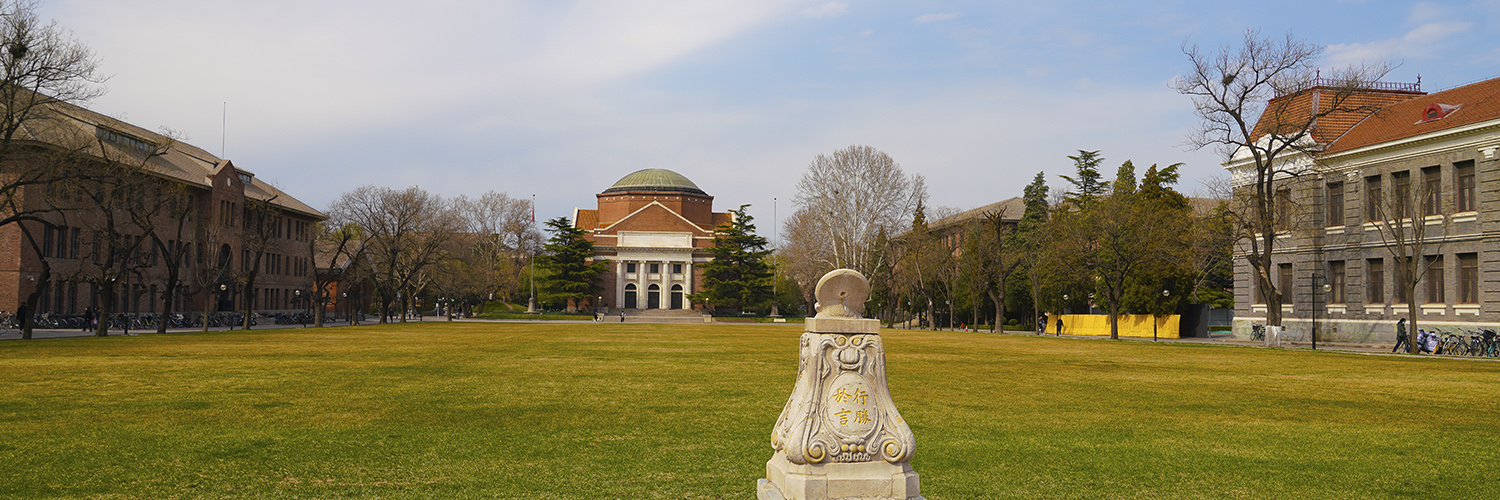主 题:Aristotle, the Mechanica, and the Inquiry into Nature
主讲人:Dr Arthur Harris (The Needham Research Institute and Darwin College, Cambridge)
时 间:2024年11月6日 13:30—15:30
地 点:清华大学蒙民伟人文楼B206

讲座摘要:
Ask any historian about Aristotelian mechanics and you will typically hear that Aristotle based his mechanics on the untested assumption that what is twice as heavy falls twice as fast, and that decisive refutation came with a brilliant series of arguments in Galileo's Discorsi (1638). The drawbacks of this familiar story are twofold: Aristotle's statements on falling bodies had little to do with mechanics, and the standard reconstruction of 'Aristotelian mechanics' overlooks the Mechanica in the Aristotelian Corpus. In this talk, I will show how the Mechanica attempts to provide a causal explanation of mechanical advantage and thereby solve an open problem at the heart of Aristotelian cosmology.
主讲人简介:
Dr Arthur Harris is Lloyd-Dan David Research Fellow at The Needham Research Institute and Darwin College, Cambridge. He completed his BA in Classics at Oxford and his MPhil and PhD in History and Philosophy of Science at Cambridge. He also completed a part-time BSc in Mathematics at the Open University. He has broad interests in ancient science and his published work has focussed on mechanics and medicine. Initially specialising in Greek science, he now has developed interests in comparing ancient Greek and Chinese medicine. His publications include ‘New Diseases and Sectarian Debate in Hellenistic and Roman Medicine’ (Apeiron, 2022), 'Quantification and precision: a brief look at some ancient accounts’ (with Prof. Liba Taub, Annals of Science, 2024), and ‘The Spectrum of Health in Ancient Greek Medicine and Philosophy’ (Classical Quarterly, forthcoming), and he has completed first book manuscript, Aristotle and the Mechanica. A special issue of Chinese Medicine of Culture 中医药文化 that he co-edited with Prof. Zhang Shujian 张树剑 came out in September 2024.


